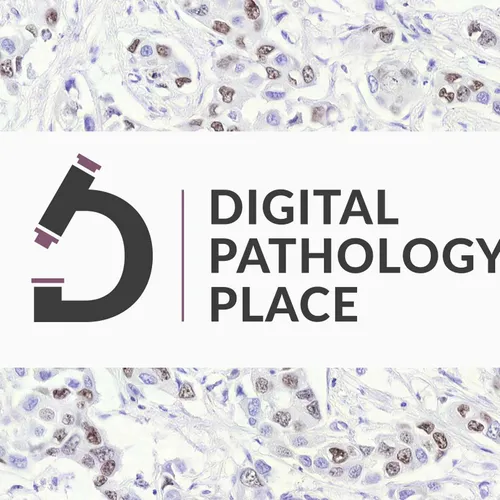156: Digital Pathology and AI in Cancer Grading, T-Cell Imaging & Biomarkers
- Author
- Aleksandra Zuraw, DVM, PhD
- Published
- Thu 21 Aug 2025
- Episode Link
- None
Can AI Grade Cancer Better Than Us? The Truth About T-Cell Imaging, Biomarkers & Digital Pathology Disruption
You think Saturday mornings are for coffee? Try diving into bone marrow morphology, organ donor kidney biopsies, and AI-driven metastasis detection at sunrise. That’s how I do it—and you’re invited to join.
Welcome to another data-packed episode of DigiPath Digest, where we explore the latest frontier in digital pathology and AI. This time, I reviewed some of the most exciting recent abstracts spanning cancer grading, T-cell quantification, and AI agents in oncology decision-making.
These studies aren’t just fascinating—they’re redefining what’s possible in diagnostics, especially in under-resourced areas where digital pathology can create game-changing access and efficiency.
🔬 Highlights with Timestamps
[00:04:00] Detecting Metastases with Vision Transformers
A team from Leeds Teaching Hospital developed a model for identifying lymph node and omental metastases in ovarian and peritoneal cancers with 99.8% AUROC and 100% balanced accuracy—this isn’t hype; it’s real AI pre-screening that could reduce diagnostic strain on pathologists.
[00:08:00] DeepHeme: Bone Marrow Smears Meet AI
UCSF and Memorial Sloan Kettering collaborated on DeepHeme, an ensemble deep learning model that classifies bone marrow aspirate cells with expert-level accuracy. With over 30K training images and strong external validation, it outperforms humans in both speed and detail.
[00:16:00] Multimodal AI for Head & Neck Cancer
This review showcases how integrating radiology, histopathology, and genomics with AI enhances personalized treatment and prognosis. Spoiler alert: Multimodal > unimodal.
[00:24:00] Real-Time Kidney Biopsy Evaluation via AI
Shoutout to our Digital Pathology Place sponsor, Techcyte, for their AI-powered tool improving accuracy and halving the time it takes to evaluate frozen kidney biopsies. This is the kind of innovation we need in organ transplantation.
[00:32:00] GPT-4 as an Oncology Agent?
Heidelberg researchers created an autonomous AI agent using GPT-4 plus vision models and OncoKB to handle oncology case decisions with 91% accuracy. This isn’t ChatGPT guessing—it’s a hybrid system citing guidelines and performing complex reasoning.
🧠 Resources From This Episode
- 📰 Multiple Instance Learning for Metastases Detection in Ovarian Cancer – Cancers journal
- 🧬 DeepHeme: Generalizable Bone Marrow Cell Classifier – Science Translational Medicine
- 📚 AI in Head and Neck Cancer: A Multimodal Review – Cancers journal
- 🧪 AI-Assisted Review of Donor Kidney Pathology – Techcyte & Digital Pathology Place demo
- 🤖 Autonomous AI Agent for Oncology Decisions – Heidelberg Group
- 🎙️ Podcast on GPT-4 agents with Dr. Nina Kolker
- 🧵 Earrings mentioned in the livestream? Find them in the DPP Store
I’d love to hear your feedback, your projects, and what digital pathology means to you. You can always reach out through comments, LinkedIn, or email.
